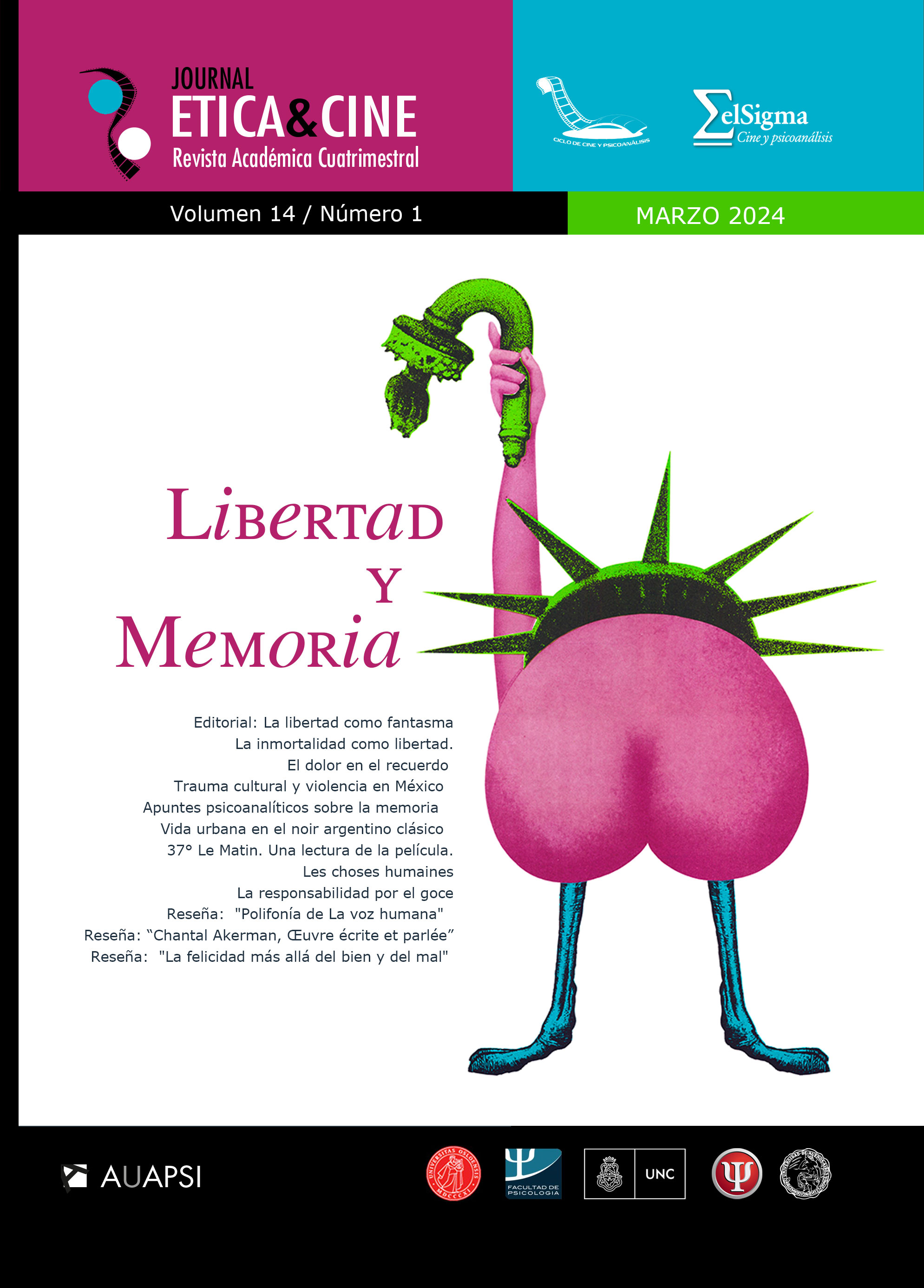Responsibility for pleasure
DOI:
https://doi.org/10.31056/2250.5415.v14.n1.44637Keywords:
sexual abuse, Metoo, guilt, responsabilityAbstract
Yvan Attal´s film Les choses humaines (2021) has at it´s background the effects of the MeToo movement, and the legal problem of determining sexual abuse in relationships that are apparently consensual. The gender perspective applied to criminal law aims to produce a subversión of basic principles such as equality before the law, presumption of innocence until proven otherwise, distintion between testimony and proof, and the presentation of evidence by the accusing party. The sexual abuse case that the film proposes allows, however, to elude that path. Unlike Akira Kurosawa´s Rashomon, where those involved in a crime give divergent testimonies about the facts, here those involved tell the same facts, only they diverge in the meaning they give to them: while for Alex there was a consensual relationship, for Mila it was rape under threat. But human things aren´t so simple: under the framework of a trial, the film proposes the paradox of a consensual sexual relationship that becomes abuse due to resignification.
Downloads
References
.
Downloads
Published
How to Cite
Issue
Section
License
Copyright (c) 2024 Ética y Cine Journal

This work is licensed under a Creative Commons Attribution-ShareAlike 4.0 International License.
Los autores que publiquen en Ética y Cine Journal aceptan las siguientes condiciones:
Los autores/as conservan los derechos de autor © y permiten la publicación a Ética y Cine Journal, bajo licencia CC BY-SA / Reconocimiento - Reconocimiento-CompartirIgual 4.0 Internacional. La adopción de esta licencia permite copiar, redistribuir, comunicar públicamente la obra, reconociendo los créditos de la misma, y construir sobre el material publicado, debiendo otorgar el crédito apropiado a través de un enlace a la licencia e indicando si se realizaron cambios.

Este obra está bajo una licencia de Creative Commons Reconocimiento-CompartirIgual 4.0 Internacional.




